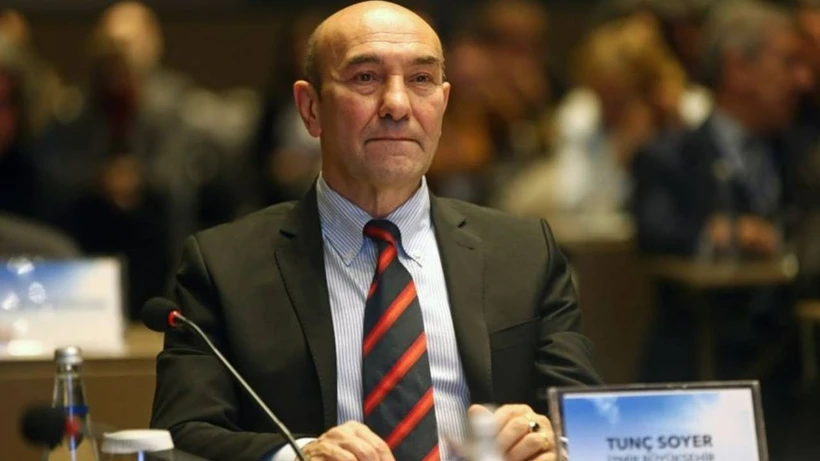
İçindekiler
I. Introduction
The battle over single-use plastics has been a focal point of environmental policy in recent years, with governments and businesses seeking alternatives to reduce plastic waste. Former President Donald Trump recently reignited this debate by announcing his plan to sign an executive order reversing Biden-era policies aimed at phasing out single-use plastics in federal agencies. In a post on Truth Social, Trump declared, “BACK TO PLASTIC!” as he criticized paper straws for their inefficiency. This move is emblematic of the broader clash between environmental sustainability initiatives and political opposition to government regulations.
II. Trump’s Executive Order on Plastic Straws
Trump’s executive order aims to undo the previous administration’s efforts to eliminate single-use plastics in federal agencies by 2035. He argues that paper straws are ineffective, stating, “They don’t work.” This stance aligns with his long-standing opposition to environmental regulations that he perceives as burdensome or unnecessary. The executive order, expected to be signed in the coming weeks, may roll back restrictions on plastic use in federal food services, events, and packaging requirements. However, the specifics of the order remain unclear.
III. Biden’s Single-Use Plastic Policy
In contrast, President Joe Biden had prioritized reducing plastic pollution through executive action. His administration’s policies aimed to phase out plastic products in federal agencies by 2027 and eliminate them entirely by 2035. Additionally, the Department of the Interior announced plans to phase out single-use plastics in federally managed lands by 2032, targeting items such as plastic bags, cutlery, and food containers. These policies were intended to combat the growing environmental crisis caused by plastic waste and promote more sustainable alternatives.
IV. Trump’s History of Criticism Against Paper Straws
Trump’s opposition to paper straws is not new. He has repeatedly voiced his disdain for the eco-friendly alternative, claiming they disintegrate and are impractical. In 2019, he even sold red, Trump-branded plastic straws as a campaign product, marketing them as a rejection of “liberal paper straws.” The straws, priced at $15 for a pack of 10, quickly sold out, highlighting how this issue resonated with his supporters. For Trump, plastic straws represent more than just a consumer product—they symbolize resistance against what he perceives as excessive government interference in everyday life.
V. The Environmental Impact of Plastic Straws
Despite Trump’s dismissal of paper straws, the environmental impact of plastic straws is well-documented. An estimated 8.3 billion plastic straws litter beaches worldwide, contributing to the broader plastic pollution crisis. Unlike biodegradable materials, plastic straws do not decompose, breaking down instead into microplastics that contaminate water sources and endanger marine life. Studies suggest that 70% of seabirds and 30% of turtles have ingested plastic debris. While plastic straws are a small fraction of overall plastic waste, their widespread use makes them a visible symbol of environmental degradation.
VI. The Political Symbolism Behind the Straw Debate
The debate over plastic straws has become deeply politicized, representing broader ideological divisions in the U.S. Environmental regulations, such as bans on plastic straws, are often championed by liberal policymakers and environmental activists, while conservatives, including Trump, frame them as unnecessary restrictions on personal freedom. This culture war over environmental policies reflects a deeper struggle over climate action, government intervention, and business regulations. Trump’s executive order is likely to be seen not just as a policy change, but as a political statement against the environmental movement.
VII. Trump’s Broader Environmental Policies
Trump’s stance on plastic straws is consistent with his broader approach to environmental regulation. During his presidency, he withdrew the U.S. from the Paris Climate Agreement, rolled back emissions standards, and prioritized fossil fuel expansion over renewable energy initiatives. Recently, he declared a “national energy emergency” to promote oil drilling, revoked federal funding for electric vehicle charging stations, and weakened the Endangered Species Act to facilitate energy development. His administration’s environmental policies have consistently favored industry deregulation over conservation efforts.
VIII. What Comes Next?
With Trump’s upcoming executive order, the response from states, businesses, and environmental groups remains to be seen. Some states and cities, like Seattle and Miami Beach, have already banned plastic straws, and private companies have voluntarily moved toward paper alternatives. If Trump reverses federal restrictions, it could create inconsistencies between state and federal policies, potentially leading to legal challenges. Additionally, environmental groups are likely to push back, emphasizing the long-term consequences of increased plastic waste.
Is It a Symbolic Stand Against Ecologic Regulations?
Trump’s move to bring back plastic straws is more than just a policy reversal—it’s a symbolic stand against ecologic regulations. While paper straws have their flaws, the broader issue of plastic pollution remains a pressing global concern. This executive order raises questions about the balance between environmental responsibility and political ideology. As the debate over single-use plastics continues, the question remains: is this a practical policy shift or merely a symbolic effort to rally support by rejecting environmental regulations?

